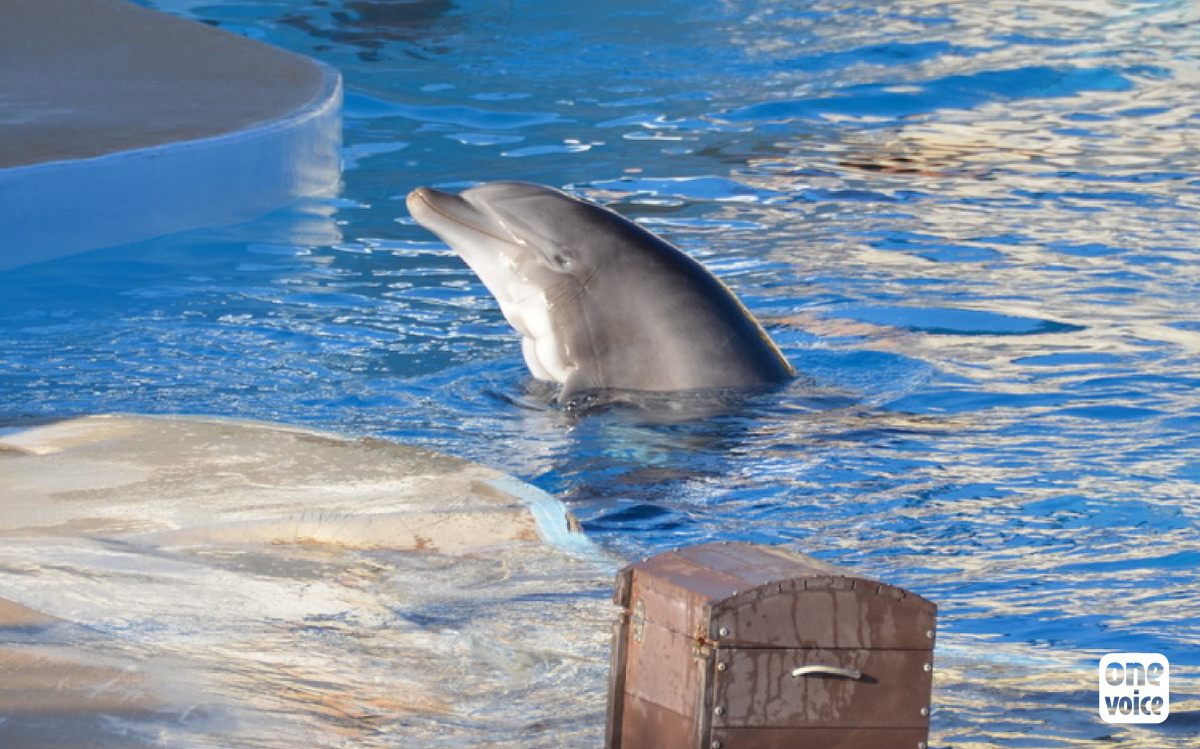

Open a dolphinarium: the strange idea of Beauval Zoo
All French dolphin aquariums, ‘dolphinariums’, were opened last century. However, since then the “Blackfish effect” has opened the public’s eyes to the suffering experience by captive cetaceans.
All French dolphin aquariums, ‘dolphinariums’, were opened last century. However, since then the “Blackfish effect” has opened the public’s eyes to the suffering experience by captive cetaceans. In the United States, Gabriela Cowperthwaite’s documentary has had an impact, worrying SeaWorld shareholders with the financial losses resulting from the revelations. As their American counterpart, Marineland Antibes finds itself restricted to offering “educational” shows and defending itself from this “slander” by posting videos. There is a lot to suggest that these media strategies won’t save the Antibes park from the same financial fate as SeaWorld.
Two independent companies are attempting with caution to breakout with dolphinarium projects. Amnéville Zoo in North Eastern France has already been singed by the general outburst following their project. Beauval Zoo remains cautious. The sudden interest seen on the web at the idea requires them to justify themselves.
In a message published on its Facebook page, the zoo defended their project: “Modern zoos invest permanently in internationally managed rearing and breeding programmes. The success of these programmes is frequently confirmed by increased birth-rates. In the case of dolphins, the European population in animal parks is continually increasing; 34 males and 21 females have been born between 2009 and 2014.”
It is impossible to verify these figures. There is no inventory of captive cetaceans at a European level comparable to the Marine Mammal Inventory Report established by the American government, which is very disappointing. However, the deaths announced in the press show us that captive cetaceans rarely live longer than twenty years. The in-breeding and strange living conditions reduce their physical and psychological resistance and dramatically reduce their life expectancy. The announced extinction of the captive population will sooner or later force the dolphinariums to recapture dolphins or to “save” new “deaf” orcas like Morgan.
If artificial insemination programmes are already doubtful for elephants or great apes, they obviously don’t make sense for cetaceans. The species Tursiops Truncates (common bottlenose dolphin), living in these aquariums is not in danger, according to the UCN. Captive breeding only serves to renew stocks of these show animals. None of them are ever put back into the sea.
The zoo continues to assert: “We unconditionally support the ban of any capture of wild dolphins. Likewise, we strongly condemn the acts that have taken place in the Japanese bay of Taiji”. Good, but in announcing its intention to open a dolphinarium–in the distant future, it specifies–Beauval Zoo is sending out a clear signal to developing countries: “Open marine parks! This industry makes money!”.
Don’t forget that this attraction dates from another century. It no longer corresponds to public sensitivity, morals, or scientific interest. We don’t reduce non-human beings to slavery, these beings who have self-awareness, have cultures and dialects and a sophisticated social life, but who above all have moral and emotional qualities which humanity should be jealous of.
Keeping cetaceans in captivity isn’t really the ‘done-thing anymore’, it’s out of fashion.
Last minute change. Beauval Zoo has given up its dolphin aquarium. In the last few months, One Voice has not given up putting on the pressure? It’s a great victory!
The abolition is happening! Keep fighting for the closure of French dolphin aquariums, sign the petition!